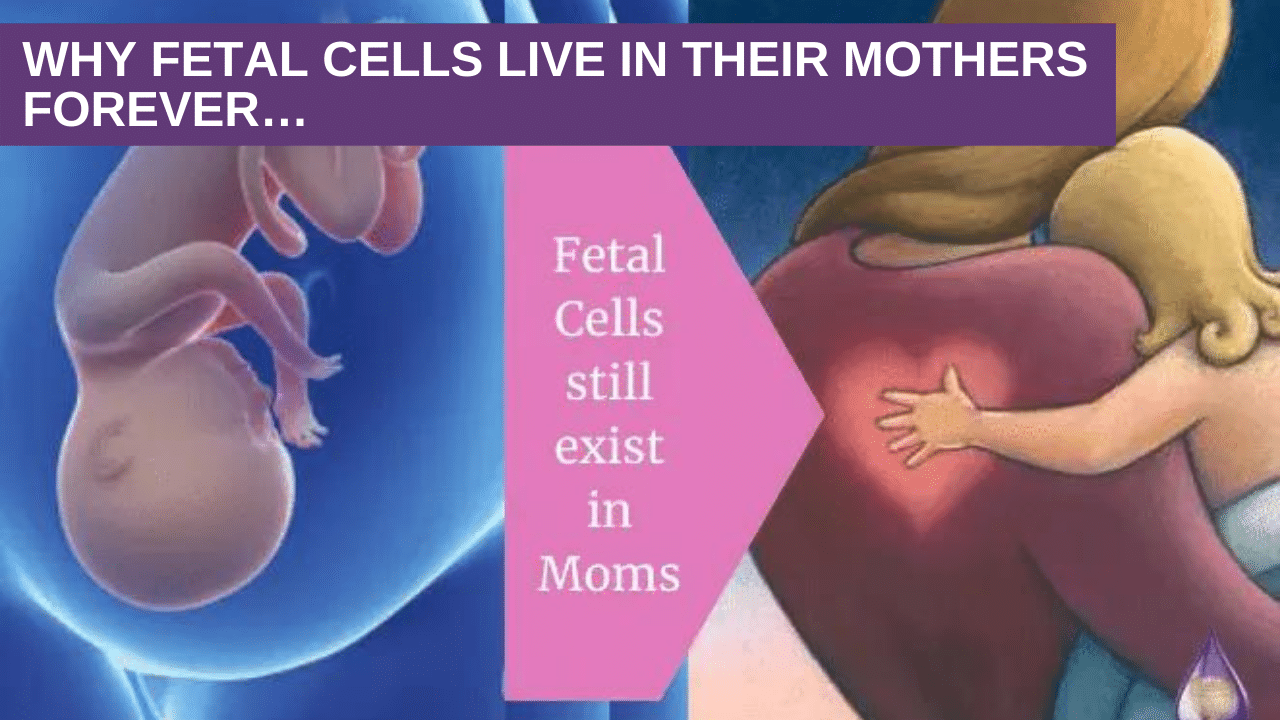Did you know that your children are within you? Literally! Fetal cells exist within mothers apparently for life.
We’ve known this since the 19th century when a German scientist studying preeclampsia discovered that a baby’s cells exist in a woman’s body after birth.
Over a century later, scientists are trying to figure out what might be the biological and evolutionary purpose for mothers to carry their children’s DNA past pregnancy.
When you are pregnant, your cells and your baby’s cells mingle.
Through the umbilical cord, your cells slip into her body and her cells slip into yours. This process is called fetal-maternal microchimera is literally a sharing of DNA from one organism to another.
The transfer of cells occurs through the placenta which attaches to the maternal arteries to ensure the fetus has nutrients. And provides a portal for the baby to gift the mother.
“There’s a very large amount of fetal material that is sloughed off into the mother’s circulation,” says Dr. J. Lee Nelson, who’s been studying rogue fetal material for more than twenty years at the University of Washington. “This material is widely circulating in the mom’s body.”
Fetal cells and DNA travel around the mother’s bloodstream and sneak into her organs.
Fetal cells act like stem cells for their mother. Stem cells are seed cells – cells that can become new tissue or new organs. Stem cells are being studied and used in the treatment of cancer, paralysis, and organ transplants. Fetal cells can go into the liver and become liver cells. They can go into the lungs and become new lung tissue. They can even cross the blood-brain barrier to become neurons.
Studies have shown that when a mother’s heart is injured, fetal cells migrate to the the injury to help repair her heart. Your children really do reside in your heart!
And it seems like your baby helps you heal after birth. Scientists have found fetal cells in C-section scars helping to produce collagen to heal the wound.
Fetal cells affect how your body handles cancer and autoimmune conditions.
They have been linked to a reduced risk of developing rheumatoid arthritis.
Fetal cells appear to help protect their mother from breast cancer, perhaps acting like little sentinels watching out for cancer cells and killing them. From an evolutionary point of view, it makes sense that fetal cells would protect its mother. Even protecting her when she is a grandmother. Why? Because grandmothers are vital to the health and wellbeing of their grandchildren. Not only to help their mothers care for the children, but more importantly to be around to pass on their wisdom.
Even if a woman does not carry the baby to term, she harbors her fetus’ cells forever. So every child you’ve ever conceived is still within you. That’s why, I believe, women never forget their pregnancies. They still are intimately attached, biologically entangled with their children living, dead, and never born.
I had a dream that I was drawing a pregnant woman’s blood for circulating fetal cells. Then I woke up knowing that the genetic material of my children still exist within me some three decades later. Perhaps that’s why we are so intimately connected…no matter how far away, I feel them.
Why do you think your body still houses your children’s DNA?
Research Reference: Cell Migration from Baby to Mother , Fetal Cell Microchimerism and Cancer: A Nexus of Reproduction, Immunology and Tumor Biology
*Statements not reviewed by the FDA.



This is a fascinating paper on fetal cells and mothers. As a Mon I knew wI gave my child nutrients, in utero, but did not realize the extent of their lifelong gift of fetal cells. Now,, I just wonder why Gid created us this way!